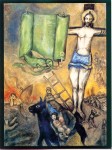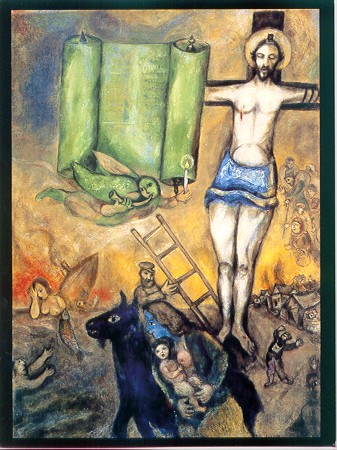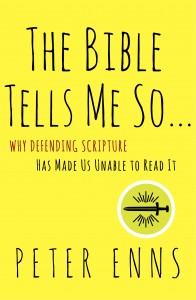Darren Aronofsky has made an eminently biblical film.
That is, if you see the Bible as a living, complex text full of conflict and theological questions.
If you see the Bible as a wooden history book, you’ll probably dislike Noah. Or at least you’ll be confused.
We pick up the story 10 generations after Adam and Eve. Noah is a boy, descended from the line of Seth. Of his tribe, we only meet his family — if there are others from the line of Seth, they are not allied with Noah.
The rest of the populace comes from Cain, the original murderer. And, although Cain’s vegetable sacrifice was rejected by God, his people are now ravenous meat eaters — almost zombie-like in their quest for blood. Sethites are the vegetarians, and this is only the first of many comments that the movie makes on our present situation.
Thankfully, Aronofsky does not try to guess at what human wore and carried thousands of years ago. Instead, he creates a credible and visually stunning world, in which Noah and his family are completely circumscribed. It’s closer to a Shakespearian play set in Nazi Germany than it is to the biblical epics that we all grew up with.
That original murder haunts the entire 2 1/4-hour movie. The murder of Abel by Cain is the black cloud that hangs over Noah, his family, and every other human. Noah dreams about it, and the descendants of Cain admit that the Creator has abandoned them, that he’s been silent for generations. “We’re on our own,” says the king of the Cainites. But Noah disagrees.
God — referred to primarily as “the Creator” — does not speak. Instead, Noah has a vision, confirmed by his grandfather Methuseleh, that the world will be destroyed because God is tired of human evil. God doesn’t exactly show Noah the ark in the dream; Noah seems to come up with that himself. But there is a moment after the vision when Noah realizes the difference between destruction by fire and destruction by water, and that’s probably worth the price of the ticket right there.
—SPOILERS BELOW—
First, let’s deal with the stone ninja angels. As soon as I saw one I said, out loud, “The Nephilim!” Now you’ve got to be pretty deep in the weeds on the Bible to even know about the Nephilim, much less to know that one of the two verses in which they’re mentioned is the verse directly preceding the story of Noah and the ark.
There is not one Bible professor on the planet who has a friggin’ clue what the Nephilim are. They are a complete mystery. So Aronofsky has as much right as anyone to decide that they are fallen angels who tried to help humans but instead became like human and were therefore encased in stone as a punishment. And now they kick ass.
Regarding the setting, two very different experiences await you as a moviegoer. In the first half of the movie, this tiny family of five (and then six) wander a treeless dystopia, every bit as postapocalyptic as a Mad Max movie, complete with the wandering hordes of Cainite thugs.
But in the second half, they’re thrown into a space little bigger than the sub in Das Boot. And it’s there, in those cramped spaces, that things begin to unravel. Noah’s interpretation of his dream becomes suspect — he’s convinced of one thing, his family thinks another. Will he submit to the wisdom of the community or stand fast with what he is sure is right? That’s the real plot spoiler, so I’m not going to answer it. But I will say this: during a couple scenes, I wondered if Russell Crowe was playing Noah or Abraham. (Here’s hoping that Aronofsky makes a movie about Abraham!)
This movie is magical realism on film. And I loved that part. It’s a retelling of one part of the Bible’s pre-history. Anything before Abraham is pre-history, people. It’s the mythical framework for the rest of the history of Israel, and as such, Aronofsky has a lot of latitude in telling the story. And he took that latitude, in spades. Any student of the Bible will have to get over the fact that only one of Noah’s three sons has a wife on the ark, but since that’s central to the conflict on the boat, you can see why Aronofsky did that. Also, the animals are quickly marginalized with a hallucinatory smoke that doesn’t affect the humans in the least. But if you get hung up on that, you probably don’t like pretty much anything in the Bible. Other non-biblical choices are more easily overlooked.
I loved it. I cried. I actually cried. And if you love the Bible, I bet you’ll love Noah, too.












